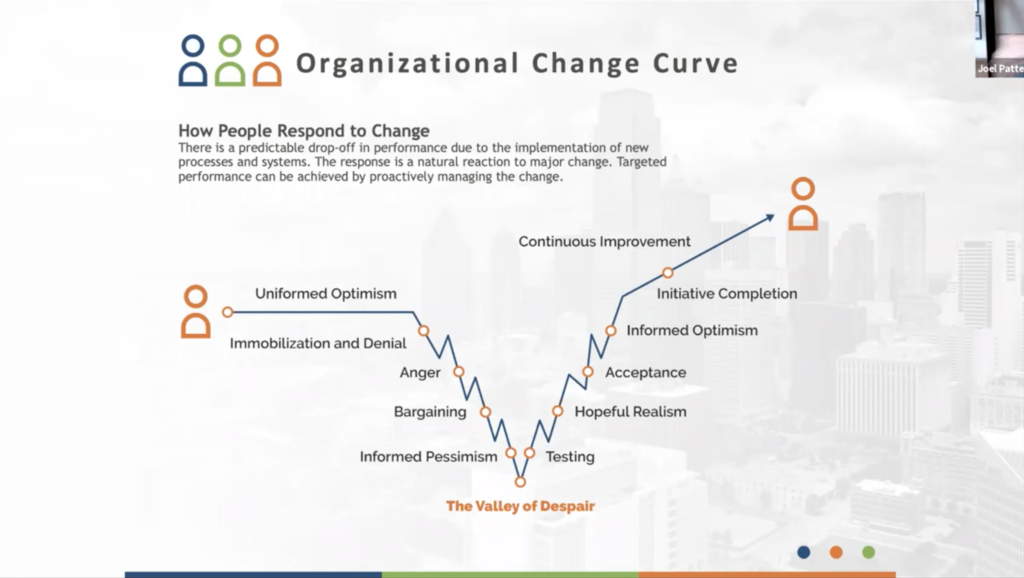Recently, Petra Coach presented a webinar, “What Is ERP and What Can It Do For Me? with Joel Patterson.
You can find the full recording below. Also, be sure to get your free copy of Joel’s book The Big Commitment HERE.
Top Takeaways
ERP Myths & Legends
- From the time ERP really started in the early 90’s until where we are now, there’s a lot of growth that’s taken place
- The software was not stable, which led to a lot of bad press
- These days the systems are much more stable – it’s gone from fixing bugs and patching to adding value to clients
Spell and Define ERP
ERP = Enterprise Resource Planning
- Coined by Gartner Research
- Spun out of MRP success
Definition: Software to run all or most functions of a business on a single product
- Often a result of Architecture Disruption
- With where we are with the cloud right now, this is essentially a 20-year decision
ERP Specifics
Benefits
- Increase in efficiency/ productivity
- Data integrity
- Access/controls/auditing
- Sustainable growth
- Actionable data
- Happier employees (not day 1)
Functionality May Include:
- Accounting/ financials
- HR
- Inventory
- Supply chain management
- BI/ Reporting
- CRM
- Manufacturing
- Distribution
- Digital business
- Warehouse management
- Mobile users
- etc.
Could We Benefit From An Upgrade?
If you’re wondering, it’s worth a look
Business reasons:
- No longer a cost center
- Configuration limitations
- High growth
- New service lines
- New geographies
- Legacy maintenance
Selections
Keep it simple
Choose method and define objectives
- Internal project team
- Selection firm
- Phone a friend
Software
- Works with my industry
- Cloud-based & multi-tenant
- Resource availability
- Vendor fit and viability
- Selection and scoring method
- Timing and phasing options
Services
- Culture fit
- Business acumen
- Technical expertise
- Ongoing support
- Support partner
- Internal team
- Vendor support
Implementation
Expectations are key
Scope Control
- Quick decisions – early delays tend to multiply exponentially
- Business changes during implementation
- Empowered team
- Phase Zero
Billing Options
- Milestone
- T&M
- Fixed fee (not recommended)
Risk Mitigation
- Phase One is most lateral
- Do you really need that much detail?
- Forget perfection
- Celebrate
3 Project Killers
- Legacy data
- Training
- Managing to exceptions
Organizational Change Curve
Ongoing Support
What Now?
- Don’t lose momentum
- Phase Two starts once the new system is burned in – typically 3-6 months
- This isn’t about bug fixes
- How will you remain proactive?
- Upgraded functionality each cycle
Takeaways
- This is hard work…but worth it if you fully commit
- Leadership and change management will win the day
- The simpler the phase 1, the smoother the transition
- Start data scrubbing today
Like what you see? Register for our upcoming workshops & webinars today!





